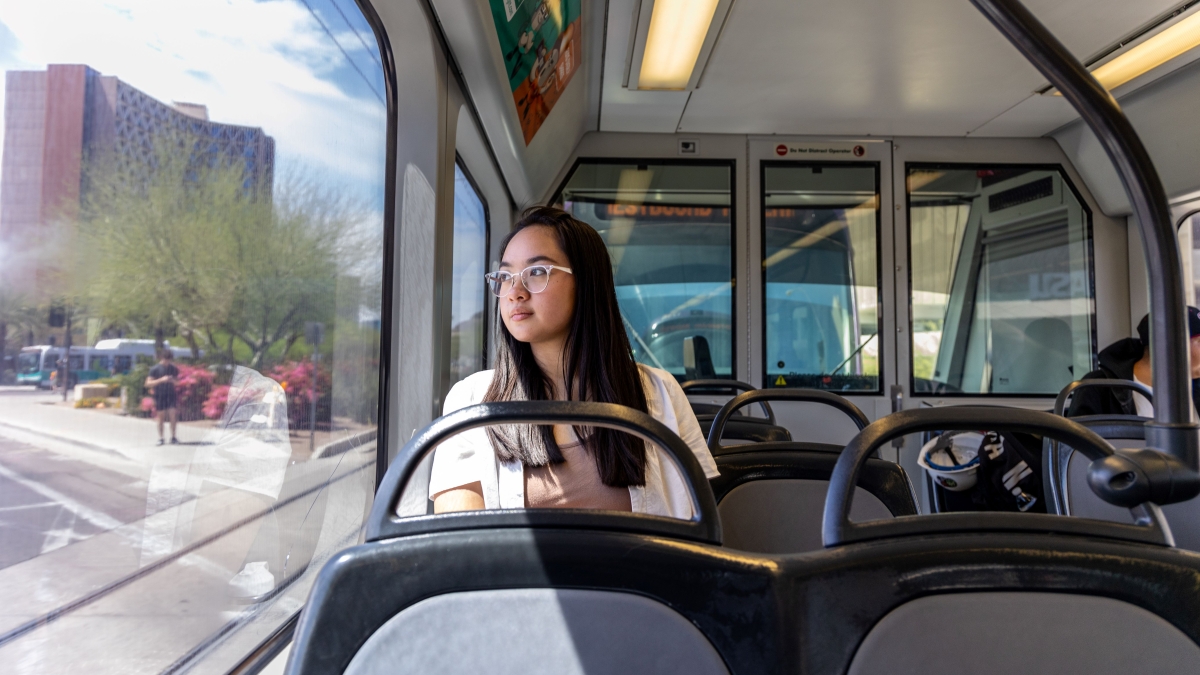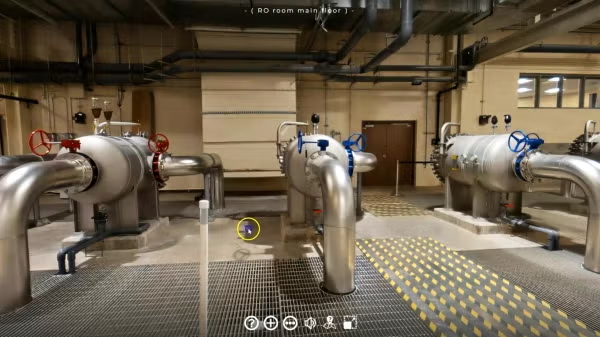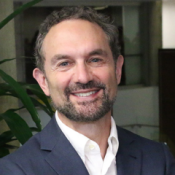Watts College professor continues longtime efforts toward sustainable community development

ASU photo
Mark Roseland says he came to Arizona State University in large part because he wanted to be in the Watts College of Public Service and Community Solutions.
Roseland’s affinity for solutions is clear from the title of his book, "Toward Sustainable Communities: Solutions for Citizens and Their Governments," featuring co-authors Margaret Stout and Maria Spilitopoulou. First published in 1992 and recently appearing in its fifth edition, the book is a powerful guide for creating vibrant, healthy, equitable and prosperous places, from the neighborhood to the regional level.
“I was a toddler when I wrote the first edition,” he joked.
Roseland is a full professor in the ASU School of Community Resources and Development at the Watts College and a senior global futures scientist with ASU's Julie Ann Wrigley Global Futures Laboratory. He lectures worldwide and advises communities, governments and organizations on sustainable development policy, planning and implementation.
Sustainable community development, Roseland said, is about looking at the entire system of a community and ensuring the change process is holistic. This means thinking of environmental, economic and social dimensions of life in an integrated way.
The book introduces the innovative "Community Capital Compass" as a powerful tool for maximizing the social, economic and environmental benefits of complex community and regional decisions.
“The Community Capital Compass is the organizing strategy we use to explain both the what and the how of pursuing sustainable communities and determining whether we are achieving our goals for places, prosperity and people,” Roseland said.
With the internet’s ability to include an infinitesimal number of edits, today a print book is outdated the day it leaves the bindery, Roseland said. In response, his is a "living book.” It is accompanied by Pando.sc, an online compendium of examples, tools and resources, and by Pando LinkedIn, where the book’s readers can connect with the authors and each other.
The world has definitely changed since the book’s fourth edition was published a dozen years ago.
“Until recently, people still mostly thought climate change and sustainability were distant problems elsewhere and in the future. But now we see the headlines every day. For example, 2023 was the hottest year on record — by a long shot,” Roseland said. “Today, climate and sustainability are front-and-center societal concerns.”
While public awareness has increased, addressing sustainability is a bigger challenge than governments can meet on their own, and therefore necessitates a whole-of-society approach, he said.
Sustainability requires constant creative problem-solving, said Roseland, another reason why he is proud that ASU is a top-ranked university for innovation, impact and sustainability. At the local level, sustainable community development relies on direct, participatory democracy — it gives people an opportunity to use their voices to be heard and influence policy, he said.
Solutions rest not only with researchers and scientists but with people and their leaders, he said, a notion that inspired the book’s subtitle — “Solutions for Citizens and Their Governments."
Roseland says the audience for “Toward Sustainable Communities” is current and aspiring professionals or practitioners, policymakers, educators, purpose-driven organizations, engaged citizens and anyone concerned about their communities and a sustainable future.
“I’m delighted by how well the book is resonating with both students and practitioners,” he said.
More Environment and sustainability

Homes for songbirds: Protecting Lucy’s warblers in the urban desert
Each spring, tiny Lucy’s warblers, with their soft gray plumage and rusty crown, return to the Arizona desert, flitting through the mesquite branches in search of safe places to nest.But as urban…

Public education project brings new water recycling process to life
A new virtual reality project developed by an interdisciplinary team at Arizona State University has earned the 2025 WateReuse Award for Excellence in Outreach and Education. The national …

ASU team creates decision-making framework to improve conservation efficiency
Conserving the world’s ecosystems is a hard job — especially in times of climate change, large-scale landscape destruction and the sixth mass extinction. The job’s not made any easier by the fact…


